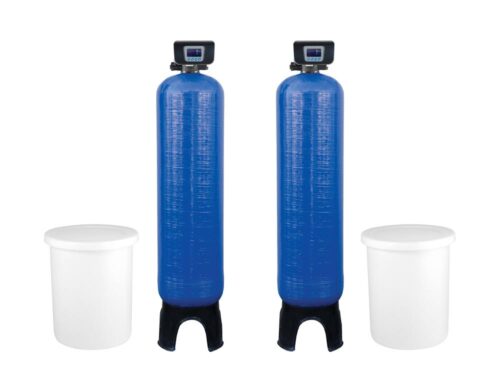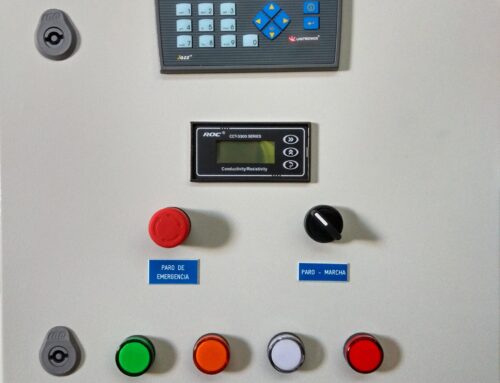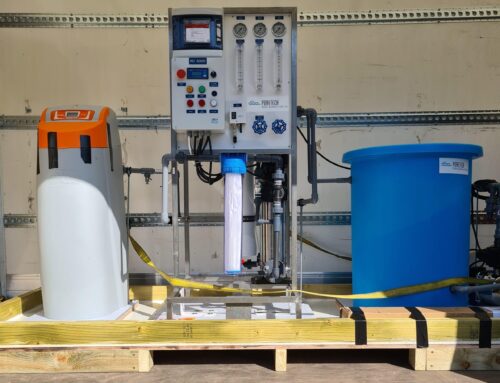What Is Water Treatment & How Does It Work?
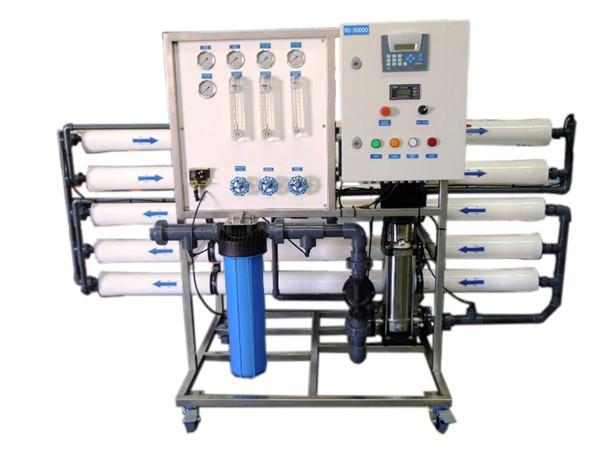
What is Industrial Water Treatment?
Altogether, water is a crucial resource for numerous industries. It is used for a variety of purposes, including cooling, cleaning, and manufacturing. However, incoming water supplies such as towns mains and bore hole extractions contain impurities. Consequently, these impurities are extremely detrimental to equipment and manufacturing processes.
Henceforth, this is where industrial water treatment comes in to play.
In this article, we will investigate what industrial water treatment is, how it works, and why it is so important.
Why Is Industrial Water Treatment Important: A Brief Summary
Evidently, water treatment is a complex process which removes impurities from water. Impurities such as minerals, organic matter, and bacteria can cause corrosion, fouling and other issues which can lead to equipment failure and downtime. Ultimately, it protects valuable assets, equipment, and processes.
It is also used to ensure that the water is safe to discharge into the environment. Water that is discharged into the environment must meet discharge consent limits to prevent harm to the surrounding ecosystem. In particular, it minimizes the impact on the environment from industrial processes.
Finally, water treatment is important because it can help to reduce costs. The amount of chemicals and energy can be reduced in the long term when introducing water treatment techniques.
How Does It Work?
Significantly, the specific processes of industrial water treatment will always vary from industry to industry and the requirements of the user. However, there is a typical set of steps involved in most industrial water treatment processes. These include:
- Pre-treatment: We remove large particles and debris from the water by using screens and settling tanks.
- Primary treatment: Sedimentation tanks and filters are used to remove suspended solids and organic matter from the water.
- Secondary treatment: Usually, people remove dissolved solids and other impurities from the water by using chemicals.
- Tertiary-treatment: Further treating the water to remove the remaining impurities like bacteria.
- Disinfection: Finally, operators treat the water further with chemicals.
These steps can often be repeated multiple times to ensure that the water is completely safe for discharge into the environment.
What Are The Different Types Of Systems?
Below is a list of the most common types of industrial water treatment systems:
- Filtration Systems: Physical barriers and filtration media is used. The filtration media used varies depending on the incoming untreated feedwater quality. Sand filters, Activated Carbon filters and PES filters are most used.
- Ion Exchange Systems: Pressure vessels that use resin and brine solutions to remove impurities and hardness from water.
- Reverse Osmosis Systems: These systems are usually put in place for finer filtration and are an extension of the aforementioned systems listed above in points one and two. These systems use semi-permeable membranes to further remove impurities from water.
- Chemical & Biological Treatment: Chemical dosing and in some cases, microorganisms can be used to break down organic matter and other impurities in the water. As a company, we focus solely on Filtration, Ion Exchange, and Reverse Osmosis.
It is commonplace for each of these processes and systems to run in tandem. However, the best system ultimately depends on the specific needs and circumstances on site.
What Are Some Common Impurities?
There are a wide variety of different impurities that may be present in the water. Some of the most common include:
- Suspended Solids: Small particles that are suspended in the water that can often cause fouling and other issues with processes and equipment.
- Dissolved Solids: Typically, minerals and other impurities that are dissolved in the water. Often, they cause scaling and other issues with processes and equipment.
- Organic Matter: Bacteria, algae, and other microorganisms. Similarly, to Suspended Solids, they often cause fouling and other issues with processes and equipment.
- Chemicals: Incoming water supplies are often pre-treated with chemicals. Chlorine and Ammonia amongst others can cause corrosion and fouling on pre-treatment equipment as well as create issues with processes and equipment.
- Pathogens: Harmful bacteria, viruses and other microorganisms that can cause illness.
Understanding the types of impurities present in the water leads to designing and implementing the most effective water treatment system.
What Are The Challenges?
Industrial water treatment is complex. Addressing water treatment concerns comes with many design and installation challenges:
- Water Volume & Flow Rates: Industrial processes often require large amounts of water. There are of course exceptions. When designing, supplying, installing, and commissioning a system we always take water volume and flow rates into account.
- Contamination: Water used for industrial processes has more potential for contamination with a wider variety of impurities present typically present in the environment. This can make treatment more difficult.
- Regulations: Strict regulations are in place to govern the discharge consent limits from Industrial businesses. Meeting these regulations can be a significant challenge, but water treatment is the best solution.
Conclusion
Industrial water treatment is a complex process that usually involves a variety of different treatment methods. The goal of industrial water treatment is to remove impurities from the water. This is to protect equipment and improve manufacturing processes and often to make sure that the water is safe to discharge to the environment.
There is a wide variety of industrial water treatment solutions available, sometimes they are required in tandem, other times they can provide a standalone solution. By understanding the impurities that are present, and the challenges faced by a business, we can implement effective water treatment systems. We offer, supply, design, installation, commissioning, and maintenance services on water treatment systems.
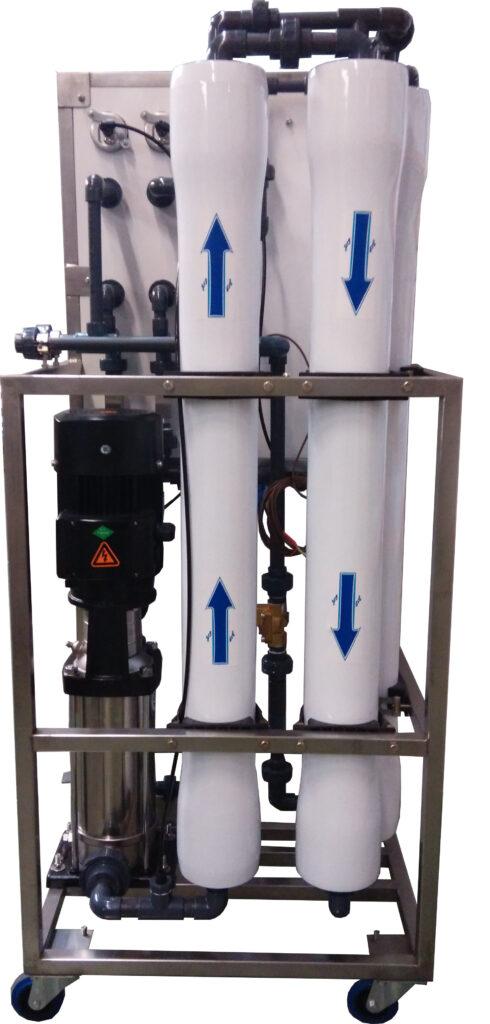
Typical end use applications for Purified Water
Reverse Osmosis Systems are commonly used across a wide range of industries with varying end use applications. Evidently, purified water has a wide range of uses, including:
- Medical: Used in medical facilities for surgeries, dialysis, and other medical procedures.
- Laboratory: Used in laboratory testing and experiments to avoid impurities interfering with the results.
- Manufacturing: Used in the manufacturing of various products, including cosmetics, food, and pharmaceuticals.
- Building Services: Used for keeping steam boilers and equipment running efficiently, by reducing blowdowns.
- Cleaning: Used in cleaning applications such as cleaning electronic components, windows, and other sensitive surfaces that special care.
- Humidifiers: Used to prevent the build-up of mineral deposits, which can damage the machinery. Also prevents the release of harmful minerals into the air space.
- Aquariums: Used for aquariums and fish tanks as it does not contain any harmful chemicals or bacteria. This protects the fish and other aquatic animals from harm.
- Drinking: Used for drinking with a remineralisation filter. Is free of contaminants such as bacteria, viruses, and pollutants.
- Cooking: Used for cooking to prevent impurities affecting the taste or quality of the food.
Overall, purified water is a versatile and essential resource. It has a wide range of uses in various industries.
In conclusion, reverse osmosis is most known for its use in water purification. Reverse Osmosis Systems aid in reducing the conductivity levels in the water and can provide a very high grade of water purity.
Find Out More
Puretech Water Systems (UK) Ltd specialise in water treatment and process filtration. We work across multiple sectors providing water processing solutions.
Interested in finding out more about the services we provide?
Find more information here: https://puretechsystems.co.uk/
More Articles
- All
- News


